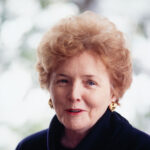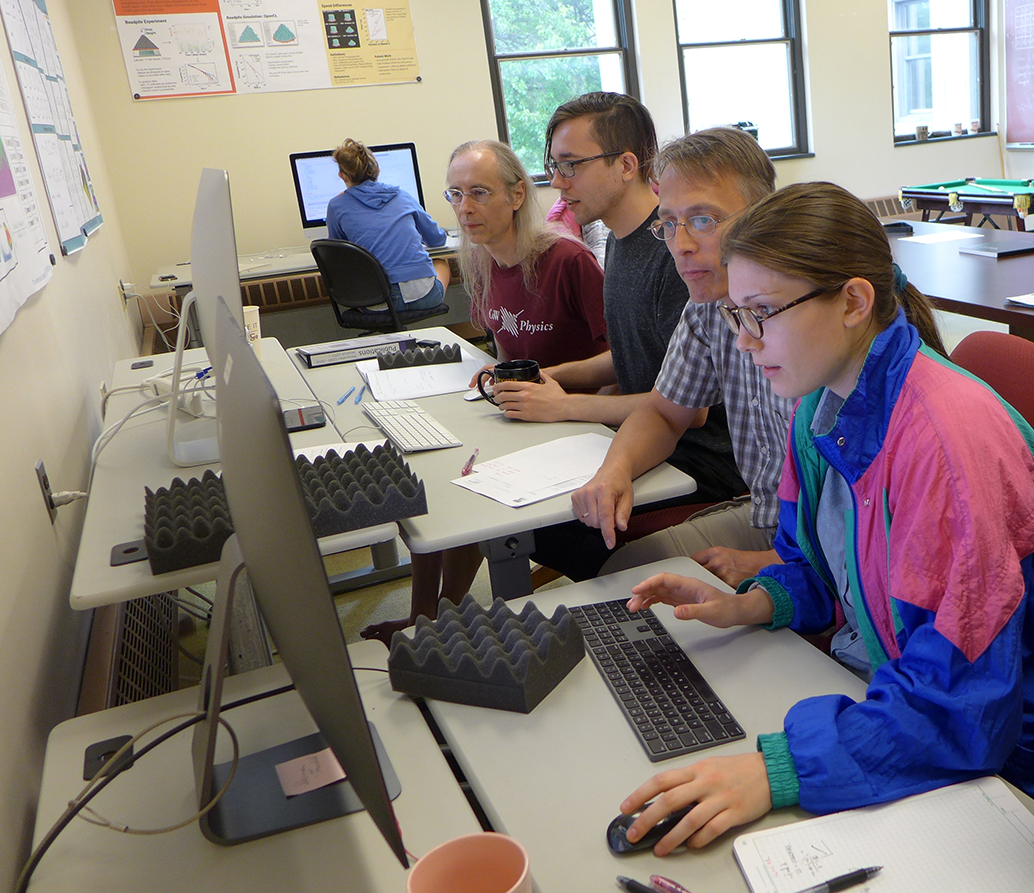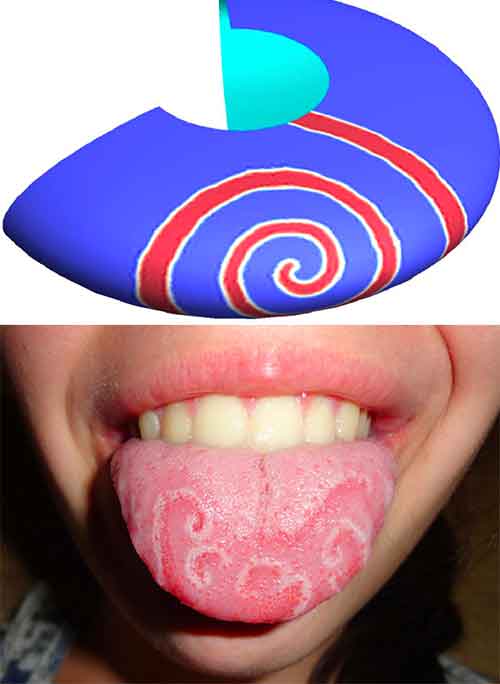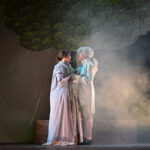
Interdisciplinary research team publishes article on geographic tongue

Alumna Margaret McGuire ’20, alumnus Chase Fuller ’19, John Lindner, the Moore Professor of Astronomy at The College of Wooster, and Niklas Manz, assistant professor of physics, published a co-written article in early March titled “Geographic tongue as a reaction–diffusion system” in peer-reviewed journal Chaos: An Interdisciplinary Journal of Nonlinear Science. The article was the culmination of research that the team did over the summer of 2019 through the physics department’s National Science Foundation Research Experience for Undergraduates (NSF-REU) program and was supported by a Sherman-Fairchild grant.
The article is on geographic tongue, “a medical condition characterized by ‘migrating’ lesions on the tongue, the cause of which is not well understood,” McGuire explained. “It is a benign condition where lesions develop on the tongue and have the appearance of moving across the surface of the tongue.”

geographic tongue illustration
The team used reaction-diffusion equations to model the evolution of geographic tongue patterns. According to Lindner, reaction-diffusion systems “involve reactions and the spread of components from high to low concentration.” The team produced a computer simulation of a tongue to investigate how the shape of the tongue effected the shape of the lesions.
This was the first research on geographic tongue to successfully model the patterns with reaction-diffusion equations. Manz further explained how this research is unique. “Until now, there is no study determining the propagation speed of various geographic tongue patterns,” he said.
McGuire, who is the lead author of this article and was a mathematics major at Wooster, contacted the physics department when she was trying to decide on a senior Independent Study topic and heard that Manz was working with a local dentist in Wooster to study geographic tongue. McGuire was on the pre-dental track at Wooster and wanted to find a way to “apply mathematics to dentistry because that’s what I wanted to do for a living,” she said. “Physics, chemistry, and computer science entered into the picture to make that connection happen.”
The interdisciplinary nature of the liberal arts curriculum of Wooster made this project possible. Lindner said that when McGuire first contacted the physics department about being involved in the research, “I immediately thought ‘Yes!’ and ‘Only at Wooster!’” McGuire was integrated into the NSF-REU summer research program and continued the team’s research in her senior I.S. with her advisor Drew Pasteur, professor of mathematics.
McGuire emphasized that while she is the lead author on the article since much of it was adapted from her I.S., the research was highly collaborative. “Dr. Manz taught me tons of stuff about reaction-diffusion systems and the theory behind them, and Dr. Lindner taught me tons of physics and coding skills,” she said. McGuire is currently in her first year of dental school at the University of North Carolina at Chapel Hill and explained how the geographic tongue research set her up well for her current studies. “It taught me the value of establishing a network of people and resources you can rely on to help you connect the dots in your project,” she said. “In interdisciplinary projects there are lots of moving parts from niche areas of different disciplines, and you need people who specialize or are really familiar with those different areas and how they can come together in a coherent picture.”
Above: The authors completed the research during the summer of 2019 physics department’s National Science Foundation Research Experience for Undergraduates program.
Posted in News on March 17, 2021.
Related Posts
Related Areas of Study
Physics
With one-on-one guidance from a faculty mentor, every physics major completes independent research in a year-long research project
Major MinorMathematics
Numbers + patterns + structures multiplied by a zest for analysis and inquiry
Major Minor

